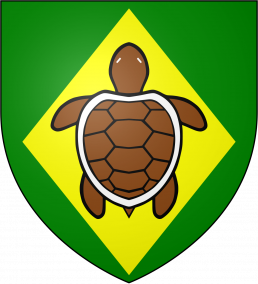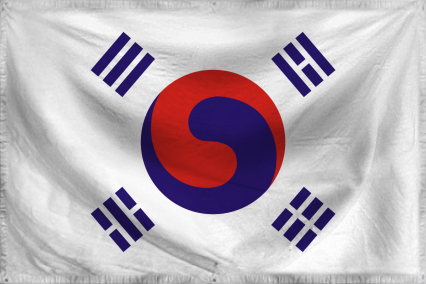
Advertisement

![]() by Feline Coasts » Thu Apr 27, 2023 1:59 pm
by Feline Coasts » Thu Apr 27, 2023 1:59 pm

![]() by Sombreland » Thu Apr 27, 2023 3:18 pm
by Sombreland » Thu Apr 27, 2023 3:18 pm

![]() by Legatia » Thu Apr 27, 2023 8:53 pm
by Legatia » Thu Apr 27, 2023 8:53 pm

![]() by Sombreland » Fri Apr 28, 2023 1:09 pm
by Sombreland » Fri Apr 28, 2023 1:09 pm

![]() by Incelastan » Sat Apr 29, 2023 8:12 am
by Incelastan » Sat Apr 29, 2023 8:12 am

![]() by Legatia » Sat Apr 29, 2023 6:11 pm
by Legatia » Sat Apr 29, 2023 6:11 pm

![]() by Sombreland » Sun Apr 30, 2023 12:20 am
by Sombreland » Sun Apr 30, 2023 12:20 am
To: General John Ironwood, Officer Commanding, Combined Task Force Oak Hand (CTFOH)
From: Vice-Admiral Althus Dargon, Commander, Royal Sombreland Expeditionary Force
Subject:Operations in Incelstan
Encryption: Most Secret
Dear General,
My forces have arrived in your general Area of Operations. I would like to propose that our force could aid yours in encircling the Masculist center, which, as I understand it, is in central Massachusetts.
Currently, these are the forces at my disposal:
Carrier Fleet Elements
- 1 Garnele CVLN (Light Carrier)
- 1 Delphin CGN (Cruiser)
- 2 Haifisch DDGs (Destroyer)
- 4 Mörderwal FFGs (Frigate)
- 2 Barrakuda FS (Corvette)
- 2 Nilpferd LPD (Landing Platform Deck)
- 2 Katzenhai SSN (Attack Submarine)
- 18 Bartgeier-C Multirole Fighters
- 6 Bartgeier-EW/C Multirole Fighters
- 6 Heavy Lift Transport Adler Helicopters
- 10 HLT-MU Adler Helicopters
- 38 Kondor-NWU Multirole Helicopters
- 7 Wildekatze Multirole Helicopters
-12 Anakonda Attack Helicopters
Royal Marine Division:
Royal Marine Armoured Regiment
- Royal Marine Heavy Battalion
- Royal Marine Light Battalion
Royal Marine Landing Regiment
Royal Marine Reconnaissance Regiment
Royal Marine Artillery Regiment
Royal Marine Field Support Regiment
My forces, therefore, can operate with a reasonable degree of independence. Please advise as to where you want us.
Vice-Admiral Althus Dargon,
Commanding Officer,
Royal Sombreland Expeditionary Force

![]() by The Great state of Joseon » Sun Apr 30, 2023 1:17 am
by The Great state of Joseon » Sun Apr 30, 2023 1:17 am

"Report the status of our aircraft currently on standby. Now." |
"Immediately take off the bombers. The enemy must be prevented from escaping. And tell the artillery where the enemy is and let them fire." |

![]() by Unoccupied New York » Mon May 01, 2023 6:54 am
by Unoccupied New York » Mon May 01, 2023 6:54 am

![]() by Incelastan » Mon May 01, 2023 9:25 am
by Incelastan » Mon May 01, 2023 9:25 am

![]() by The Great state of Joseon » Wed May 03, 2023 7:18 am
by The Great state of Joseon » Wed May 03, 2023 7:18 am

"As far as I know, the enemy's air force is now wiped out, and MANPADS is the only air defense network. Is that right?" |
"Yes, that's right. The enemy's only air defense weapon is MANPADS. There is no air defense weapon in the enemy that can handle medium-range or higher." |
"Then, isn't there no reason for us to maintain the air force on the battlefield only with stealth fighters?" Electronic Warfare Aircraft have nothing to do on the battlefield right now." |
"That's right. In fact, stealth fighters on the scene are operating with external armament on board. This is because there is no reason to maintain stealth function and conduct military operations. So we need more non-stealth aircraft like the F-15 and the F-16s. F-15s and F-16s can carry more weapons than stealth fighters. They are the most desperate assets for our military at the moment, and they are also the most useful assets." |
"Okay, We'll send additional air force, but We'll send only 4.5 generation fighters. More aviation weapons may also be needed in the future. We need to send transport planes regularly to carry more ammunition, such as missiles and bombs." |

![]() by Legatia » Wed May 03, 2023 9:29 am
by Legatia » Wed May 03, 2023 9:29 am


![]() by Sombreland » Thu May 04, 2023 8:00 am
by Sombreland » Thu May 04, 2023 8:00 am

![]() by Incelastan » Thu May 04, 2023 8:26 am
by Incelastan » Thu May 04, 2023 8:26 am

![]() by Anagonia » Fri May 05, 2023 7:55 pm
by Anagonia » Fri May 05, 2023 7:55 pm
TO: ICON Allied Units; Civilian Units impacted by the conflict
FROM: Commodore Finlay Green, Commanding Officer of Confederate Navy Battle Fleet Forest Holloway
SUBJECT: Arrival and Announcement of Open Logistical Aid; Civilian Aide
Attention to all allied and civilian units,
I have attached in this public communique the location of my fleet. All civilian assets seeking emergency medical support or attention, asylum, refugee status or support are openly welcome to come in an orderly fashion for support. Attached in this message shall be the appropriate protocol and which channel to use to first announce your intention, identify your location, and await escort for support. To all ICON allied units, your military naval protocols will already be matched to ours and your air units are welcomed to utilize our carrier decks (both helicopter and jet aircraft) for refuel and rearming. Additionally we have some minimal naval fleet support available but will admittedly be stingy with our fuel reserves.
We are maintaining a presence at this location off the shore of the old New England States, just eighty-five nautical miles south of New York State and Long Island. We can and will move closer pending successful operations of allied forces to maintain and secure territory, up to the recognize boundary line for international waters.
Thank you,
Commodore Finlay Green
CO of Naval Battle Fleet Forest Holloway

![]() by Legatia » Sat May 06, 2023 12:31 pm
by Legatia » Sat May 06, 2023 12:31 pm
Citizens of Boston!
Your liberation is at hand as free men and women. The Coalition sits on the outskirts of Boston and has sent the forces of the Masculist regime retreating in New York and New England.
Cast aside your chains and reject your oppressors. Claim your birthright of freedom once more and end the nightmare laid upon your people!


![]() by Polish Prussian Commonwealth » Sat May 06, 2023 10:28 pm
by Polish Prussian Commonwealth » Sat May 06, 2023 10:28 pm

![]() by Polish Prussian Commonwealth » Sun May 07, 2023 8:44 pm
by Polish Prussian Commonwealth » Sun May 07, 2023 8:44 pm

![]() by Sombreland » Sun May 07, 2023 10:13 pm
by Sombreland » Sun May 07, 2023 10:13 pm

![]() by Anagonia » Mon May 08, 2023 2:05 am
by Anagonia » Mon May 08, 2023 2:05 am

![]() by The Great state of Joseon » Mon May 08, 2023 6:11 am
by The Great state of Joseon » Mon May 08, 2023 6:11 am
""All troops, attack the retreating enemies. Don't attack passively only with drones, but actively charge so that your enemies don't get out of Yonkers." |
To. Commonwealth of New York Military Command
From. General Adrian Quaritch, The Commander of Joseon Military
We got the surrender of the enemy troops at Providence.
Currently, we need facilities to accommodate prisoners, and the only suitable facilities are the Metropolitan Correctional Center in Manhattan. We will provide security forces to guard the building and we will also pay for the meals to be provided to the prisoners.
We look forward to your positive response.

![]() by Incelastan » Tue May 09, 2023 7:15 am
by Incelastan » Tue May 09, 2023 7:15 am

![]() by Europe a Nation » Tue May 09, 2023 8:01 am
by Europe a Nation » Tue May 09, 2023 8:01 am
ORBAT
X - Expeditionary Task force - 1981 per.
- II - Strategic Fires Battalion
- II - Military Intelligence Battalion
- II - Security Battalion
- II - Support Battalion
2x II - Separate Logistics Battalion
1x SAN.1039R2 "Ravana"
- 2x Hypersonic Cruise Missile MK-867FL "Killjoy"
- 40x Subsonic Cruise Missile MK-67 "Tomcat"
WE LIVE IN A PERIOD

![]() by Unoccupied New York » Tue May 09, 2023 10:44 am
by Unoccupied New York » Tue May 09, 2023 10:44 am

![]() by Sombreland » Tue May 09, 2023 2:18 pm
by Sombreland » Tue May 09, 2023 2:18 pm
Advertisement
Users browsing this forum: Furballland, Musically Gingers, Norwegian FOREST Cat
Advertisement